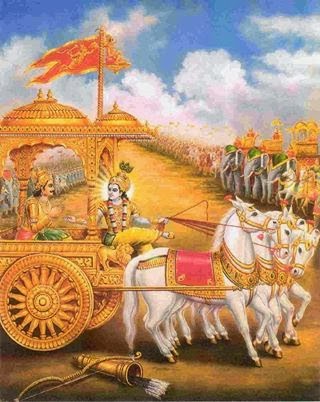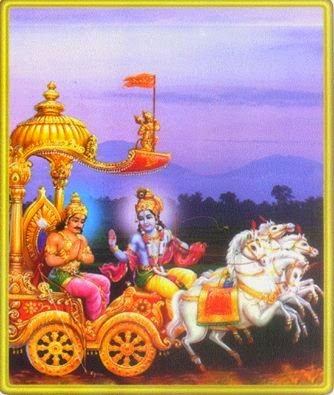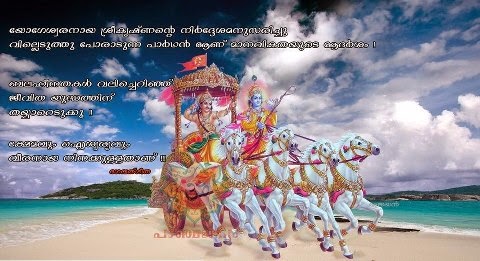Gita: Ch-3. Slo-6.

Srimad Bhagavad-Gita : Chapter-3. ( Karma-yogam ) Slokam-6. ( One who restrains the senses and organs of action, but whose mind dwells on sense objects, certainly deludes himself and is called a pretender.) karmendriyani samyamya ya aste manasa smaran, indriyarthan vimudhatma mithyacarah sa ucyate. karmendriyanni samyamya = controlling all karmendriya-s; yah manasa = anyone who by mind; indriyarthan = about the vishayas of indriya-s (sense-objects ), smaran aste = remains thinking; vimudhatma sah = foolish person, he; mithyacarah ucyate = (is) called as Mithyacaran ( pretender). The unqualified renunciate who in ignorance attempts to perform jnana yoga the cultivation of spiritual knowledge is being censored now. In a strong sense Lord Krishna states: that fool who by forcefully restraining the senses under the pretext of meditation but is inwardly reflecting on the objects of the senses is a cheat and a charl






.jpg)










